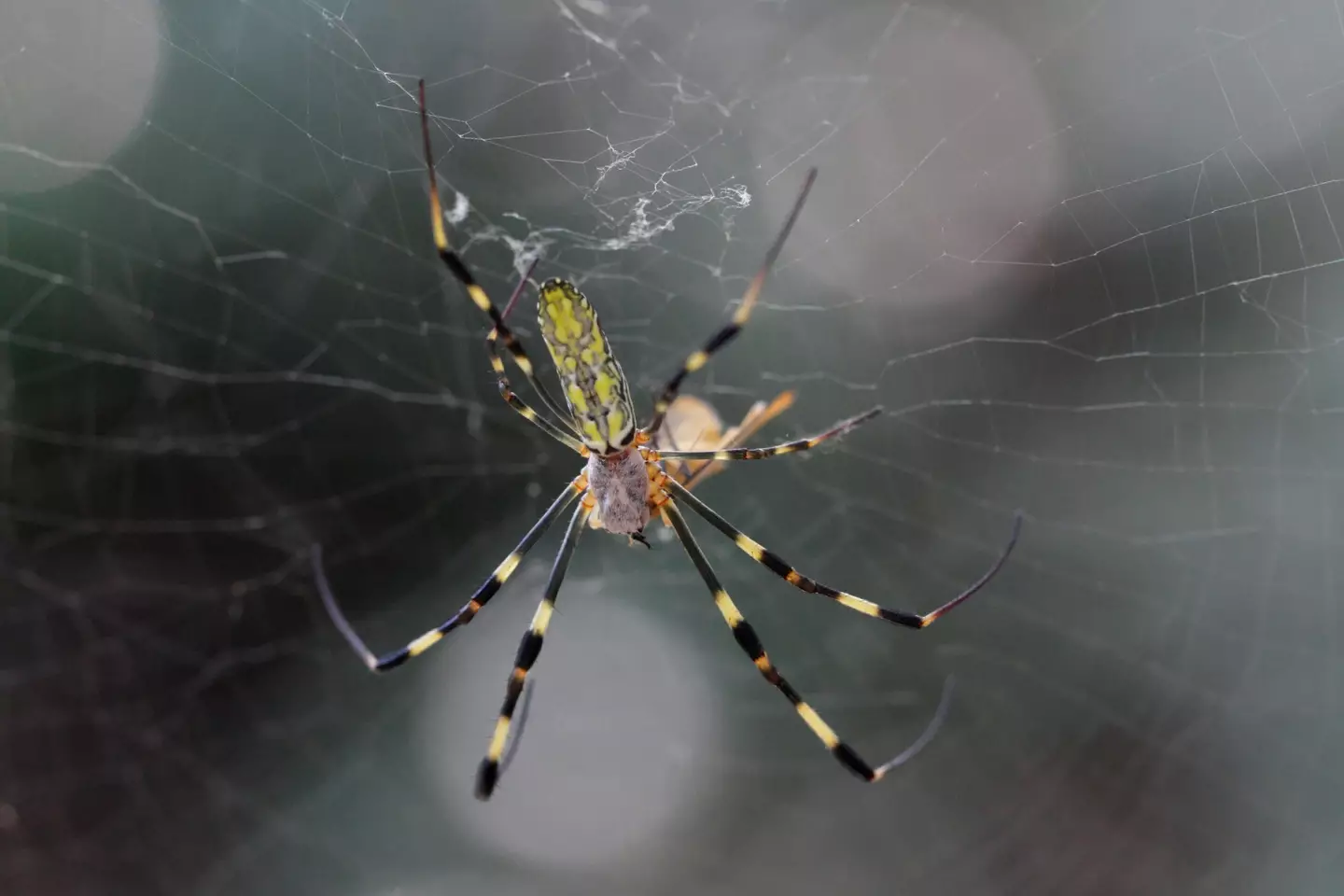
A new scientific study suggests that spiders can effectively 'hear' oncoming predators and prey, thanks to an intricate 'tuning' system using the strings of their webs.
For orb-weaving spiders, the minute vibrations felt though the web is thought to help them detect sounds - and react accordingly.
In paper published in Proceedings of the National Academy of Sciences on Tuesday, scientists from New York's Binghampton University claim that the sound vibrations can be heard thanks to the hairs on their legs.
While insects and spiders are 'deaf' in the literal sense of lacking eardrums, these highly sensitive hairs allow arachnids to pick up any local vibrations - including sound - from their webs.
Advert
As part of the research, orb-spiders were collected from windows on the campus of Binghampton University.
Each was then given time to build a web within a rectangular soundproof room, which the research team would then play sounds into.

Remarkably, the spiders did indeed react to the noises played, even when it was at a very low volume.
Advert
Better still, they could actually detect where the sound was being omitted from.
As the research team explain in the paper, they found that the spider webs caught movements of nearby air particles, which were being vibrated by the sound waves.
The scientists found that four out of 12 spiders still responded to the extremely weak signal, meaning they could feel the vibrations on the web itself.
In response, the spiders would change body positions in order to alternate the tension of the web. This had the effect of 'tuning' the web so the spider was able to hear specific sounds - almost like you or I would with a radio.
Advert
It's certainly a fascinating discovery, one that has researchers pondering whether other species are capable of interpreting sound in a similar way.
"The real question is, if the web is moving like that, does the spider hear using it?” Ron Miles, a mechanical engineer at Binghamton University and co-author of the study, said in a statement.
"It’s reasonable to guess that a similar spider on a similar web would respond in the same way."
"The spider is really a natural demonstration that this is a viable way to sense sound using viscous forces in the air on thin fibers. If it works in nature, maybe we should have a closer look at it," Miles added.
Advert
If you have a story you want to tell, send it to UNILAD via [email protected]
Topics: Technology, Animals, Science
